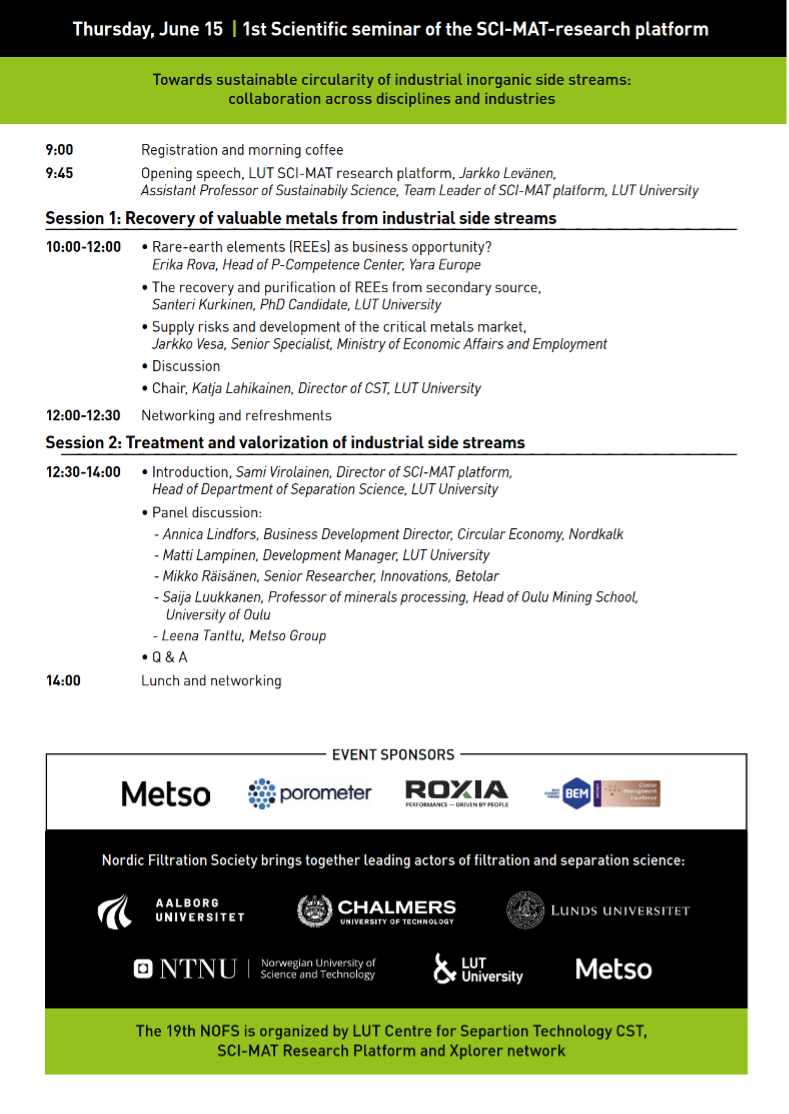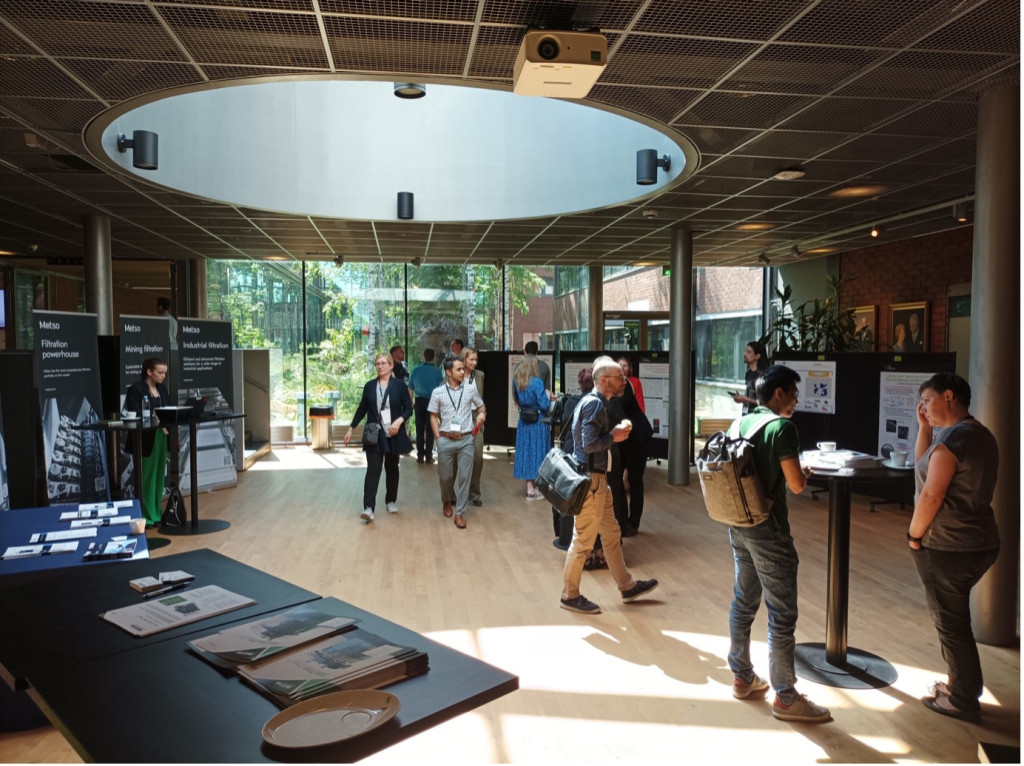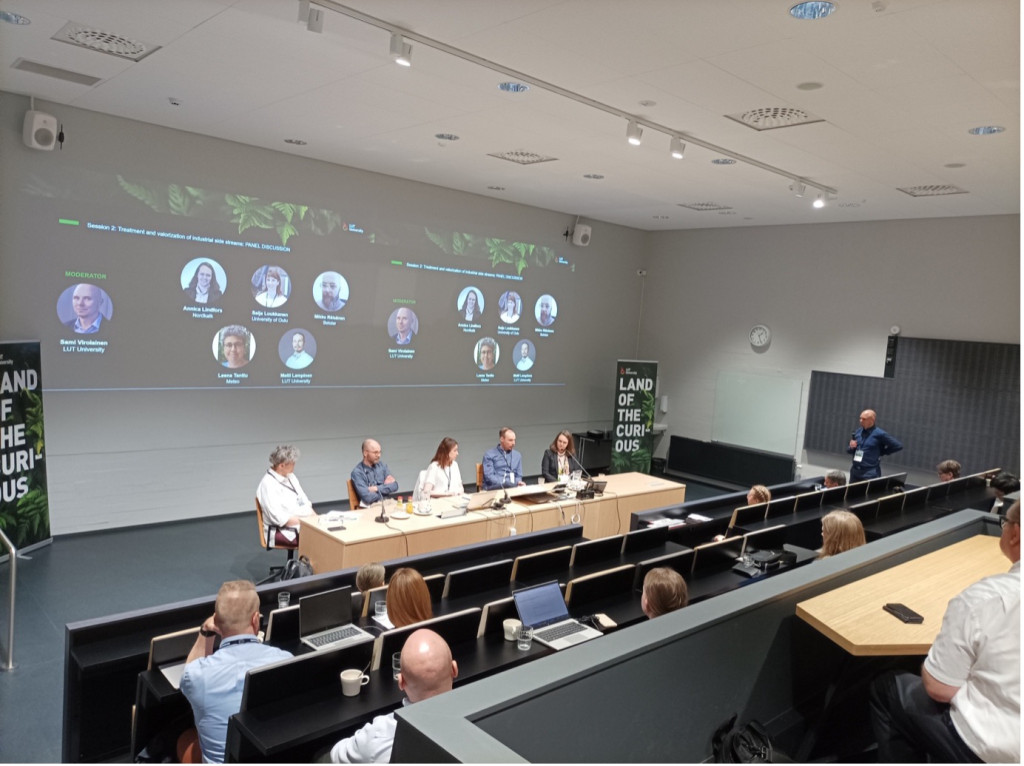On June 15th, 2023, the SCI-MAT Platform hosted its inaugural seminar titled "Towards sustainable circularity of industrial inorganic side streams". Organized by the LUT SCI-MAT research platform in partnership with the Centre for Separation Technology (CST) and the Xplorer network, the event convened experts and professionals from various fields to discuss the future of sustainable circularity.

Setting the Stage
Assistant Professor and Team Leader at SCI-MAT Jarkko Levänen initiated the event with an opening speech. Outlining the goals and aspirations of the SCI-MAT platform, Levänen emphasized the role of the platform in facilitating collaborative sustainable research. His words set the tone for a day filled with rich insights and passionate discussions.
Session 1: A Look at Valuable Metals
Erika Rova from Yara Europe provided a detailed presentation on the significance of sustainable fertilizers in shaping a future with minimal environmental impact. Erika highlighted Yara's mission to foster a nature-positive food future, emphasizing the company's significant role in promoting sustainable farming through low carbon footprint fertilizers. Her presentation also remarked on the value potential embedded in industrial side streams, noting how Yara has begun the production of REEs from their raw materials. She further elaborated on the potential of zero-waste fertilizer production and its implications for the industry, while also highlighting specific challenges and opportunities in this space.

Following this, Santeri Kurkinen of LUT University highlighted ways of extracting REEs from phosphogypsum—a waste material of phosphoric acid production—using novel improvements in techniques such as resin-in-leach and ion exchange chromatography. Additionally, he discussed the pivotal role of rare earth elements in modern applications, highlighting their importance from renewable energy solutions to electronic devices. With a deep dive into the extraction, separation, and purification processes of these crucial metals, Santeri emphasized their indispensable role in the modern tech world.
To top off the session, Jarkko Vesa of the Ministry of Economic Affairs and Employment of Finland took the audience through the pressing challenges in the global critical metal landscape. His presentation highlighted the European Union (EU)'s considerable metal imports and the evolving supply and demand dynamics. Furthermore, Vesa touched upon the implications of the European Critical Raw Materials (CRM) Act, which aims to address these challenges, especially in diversifying CRM imports and improving circularity and sustainability. With the EU importing over 250 million tons of metals annually, the supply and demand dynamics are at a crucial juncture. The soaring demand for metals, catalyzed by the electric vehicle revolution and the pressing need for innovation metals, paints a compelling picture of the changing geopolitics of CRM supply chains.

Session 2: Industrial Side Streams Under the Microscope
The second session, introduced by Sami Virolainen, Director of the LUT SCI-MAT platform, featured a panel discussion on the treatment and valorization of industrial side streams. Panelists Annica Lindfors (Nordkalk), Saija Luukkanen (University of Oulu), Mikko Räisänen (Betolar), Matti Lampinen (LUT University), and Leena Tanttu (Metso) brought diverse perspectives, enriching the dialogue on sustainable practices in industrial processes. The panelists exchanged knowledge and perspectives on treating and valorizing industrial side streams, a topic gaining immense importance as industries worldwide pivot towards sustainability. The panel further ignited insightful debate involving the audience, with perspectives ranging from the technical importance of thorough characterization to leading project and process development with a “business-first” perspective, highlighting the need for increased dialogue and continuously aligning interests between the various levels of engaged actors including academia, industry, and government.
Looking Forward
The 1st Scientific Seminar of the SCI-MAT Platform was a significant step towards fostering a dialogue on sustainable circularity in the industry. With knowledge-sharing sessions, expert insights, and active collaborations, the event set the stage for what promises to be a future filled with innovation, sustainable practices, and industry transformations. As Jarkko Vesa’s presentation effectively conveyed, while the demand for CRMs is slated to surge in the coming decades, it is imperative to address the associated risks and potential socio-environmental repercussions. With pioneering research, strategic partnerships, and collaborative efforts, the SCI-MAT platform is poised to contribute to reshaping the landscape of sustainable industrial practices. We look forward to more insightful seminars and collaborative efforts to drive the mission of sustainable circularity forward!